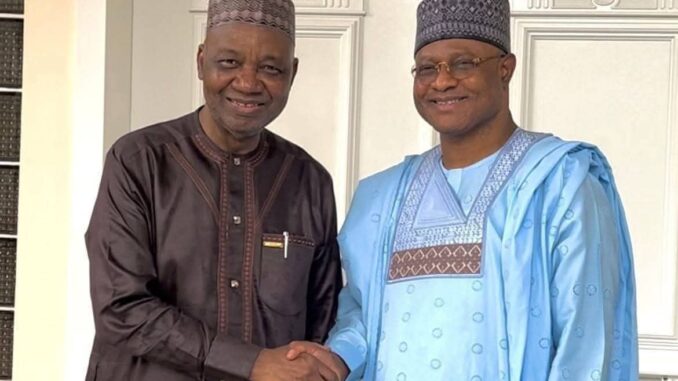
In a significant political development, former Nigerian Vice President Alhaji Namadi Sambo has officially defected to the All Progressives Congress (APC), marking a notable shift in the country’s political landscape. The announcement was made during a press conference at the APC state headquarters in Kaduna, where Sambo was warmly received by party leaders and supporters.
Sambo, who served as Nigeria’s Vice President from 2010 to 2015 under President Goodluck Jonathan’s administration as a member of the People’s Democratic Party (PDP), cited his desire to contribute to national unity and development as the primary reason for his defection. “The APC’s vision for a united and prosperous Nigeria aligns with my aspirations for our great nation,” Sambo stated. “I believe in the party’s commitment to progress, and I am here to lend my experience and support to its agenda.”
The event was attended by prominent APC figures, including the Kaduna State Governor, Senator Uba Sani, and other party stalwarts. Governor Sani described Sambo’s defection as a “game-changer” for the party, emphasizing that his wealth of experience as a former governor of Kaduna State (2007–2010) and vice president would strengthen the APC’s position in the region and nationally.
Sambo’s move comes amid ongoing political realignments ahead of the 2027 general elections. Political analysts suggest that his defection could bolster the APC’s influence in northern Nigeria, particularly in Kaduna, where Sambo remains a respected figure. However, the move has sparked mixed reactions, with some PDP members expressing disappointment, viewing it as a loss for the opposition.
While details of Sambo’s role within the APC remain unclear, sources within the party indicate that he is expected to play a strategic advisory role, leveraging his extensive political network and governance experience. The APC national leadership is yet to issue an official statement, but the defection is already generating significant buzz on social media platforms, with posts on X reflecting both support and skepticism about the implications of this move.
Leave a Reply